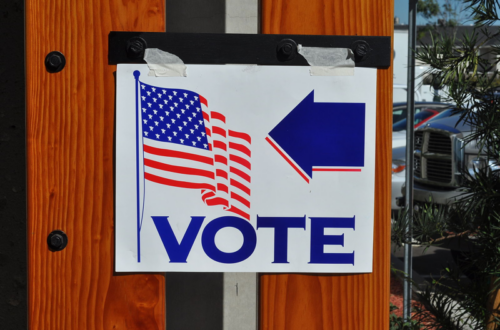With the third-highest percentage of adults lacking basic prose literacy skills, Florida’s population has a literacy rate of just 80.3%.
Florida House Speaker Chris Sprowls, R-Pinellas, is attempting to remedy these statistics through the New Worlds Reading Initiative which aims to boost the literacy rate among elementary-aged students who are reading below their grade level.
During his tenure, Sprowls highlighted that “many [of the struggling K-5 readers] don’t even own a book in their homes.” He went on to say that this fact was the “pressure point — and that is where we are failing our kids.”
Sprowls emphasized research that showed a correlation between literacy rates in primary education and opportunities for success. Numerous studies have been conducted and cataloged by the Florida Literacy Coalition showing how literacy rates affect socioeconomic factors like poverty, economics, education, income and health.
The National Institute for Literacy found that 43% of adults with “very low” literacy skills live in poverty and that 47% of welfare recipients never graduated high school. The U.S., despite being one of the most developed countries in the world, has one of the highest child poverty rates among other developed countries.
Children in the U.S. are twice as likely to live in poverty than any other age group according to the National Center for Children in Poverty. Over 83% of children whose parents do not have a high-school degree live in low-income households.
This program is a step towards bridging the gap that exists between literacy in education and success thereafter. It was approved with a bipartisan vote during the 2021 Florida Legislative Session and took effect last December.
The University of Florida Lastinger Center for Learning is the state-appointed administrator who runs the program, and they have chosen Scholastic as a strategic partner. The UF Lastinger Center also consults with the Florida Department of Education’s Just Read, Florida! Office to develop the growing list of books to be included in the program.
The program is designed to tailor itself to each individual student based on their interest and reading level. Every month, enrolled students receive a free book that they can keep. Each student accumulates 54 books if they enroll in kindergarten and remain enrolled through fifth grade.
Along with the free books, parents and family members receive supporting materials to help encourage and engage students and their families in working to raise their literacy skills. It is a diverse program that includes reading materials in English, Spanish and Haitian Creole language formats.
Shaunté Duggins, UF’s Assistant Director for the New Worlds Reading Initiative, described the NWRI as a program that “goes beyond success in school, but in life.” She went on to explain that “Florida has always been a trendsetter in education” and “a strong foundation in literacy is far-reaching beyond education.”
The New Worlds Reading Initiative has already surpassed its enrollment goals for its first active year but has the ultimate goal of reaching all 550,000 students in the state of Florida who can still benefit from this program.
The future of the New Worlds Reading Initiative includes adding braille to the list of available formats and a robust campaign to reach as many families as possible through their literacy resources and family-oriented programs.
Interested families are now able to sign up for the program online at no cost.
Check out other recent articles from the Florida Political Review here.
Featured image: An image of Steacie Science and Engineering Library at York University. Unmodified photo from Wikimedia Commons used under a Creative Commons License. (https://bit.ly/3GNWQcB)
Correction: June 10, 2022
This article stated “the Florida Department of Education, University of Florida Lastinger Center for Learning, and Scholastic publications sponsor and run the program,” however each organization plays a different role.
This article incorrectly stated students can receive up to 50 books, rather than 54.





